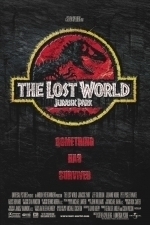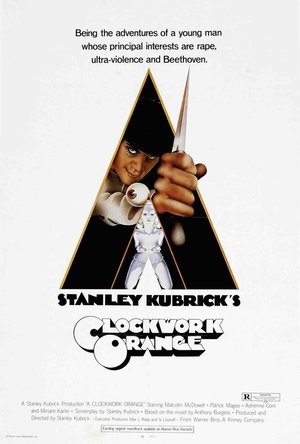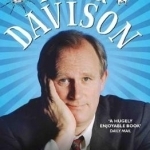
Is There Life Outside the Box: An Actor Despairs
Book
Despite displaying unspectacular scientific aptitude at school - he even managed to fail CSE...
LeftSideCut (3776 KP) rated The Lost World: Jurassic Park (1997) in Movies
May 20, 2019 (Updated Jun 24, 2019)
The Lost World is the first of a handful of sequels that don't even scratch the original, but I've always thought this was an underappreciated follow up.
As with the first, I first saw this when I was very young, and naturally thought it was incredible (as any 10 year old boy would), but unlike the first one, it doesn't hold up watching it now.
Starting with a huge positive though - I will always, and I mean always have time for Jeff Goldblum. He has always been one of my top actors and he returns to the role of Ian Malcolm with aplomb here.
Another welcome member of the cast is Pete Postlethwaite as the token bad guy, and of course Richard Attenborough returning as John Hammond.
There are also some great set pieces, namely the now infamous trailer-hanging-from-the-side-of-cliff scene. The tension built up here is reminiscent of the first T-Rex scene from the first film.
But on the flip side you have the last 30 minutes. The change of location is jarring and the urban setting highlights just how rough around the edges the special effects are.
I have to give kudos to Spielberg for attempting such an ambitious twist at the last minute, but it doesn't quite work, and gives way to a huge plot hole involving the fates of the ship crew.
I also find myself not really caring about the rest of the cast, which is a shame, as I tend to enjoy Julianne Moore.
Overall - it's not terrible, it's not great, but enjoy this sequel for what it is as it's down hill from here!
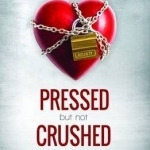
Pressed but Not Crushed
Book
'Andy has had a major stroke in the brain stem, the control centre of the brain. This has left him...

Eight Perfect Murders (Rules for Perfect Murders - UK)
Book
A chilling tale of psychological suspense and an homage to the thriller genre tailor-made for fans:...
Nick Rhodes recommended Never Mind The Bollocks, Here's The Sex Pistols by The Sex Pistols in Music (curated)

History of Artists' Film and Video in Britain
Book
In recent years the use of film and video by British artists has come to widespread public...
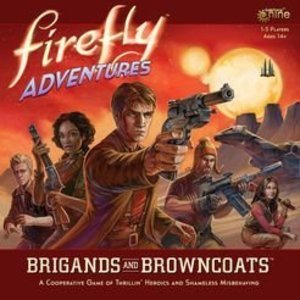
Firefly Adventures: Brigands and Browncoats
Tabletop Game
Firefly: Adventures is a cooperative, mission based, skirmish-level game where the players use the...
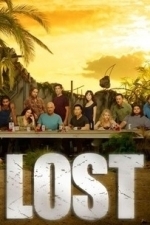
Lost - Season 1
TV Season Watch
Oceanic Air flight 815 tore apart in mid-air and crashed on a Pacific island, leaving 48 passengers...
Chris Sawin (602 KP) rated A Clockwork Orange (1971) in Movies
Jun 15, 2019
Alex is promised that he'll be a free man within a fortnight. The treatment consists of a drug known as Serum 114 being injected into the patient before making them sit through short films such as a man being beaten to a pulp, a woman being the sexual victim of several men, and a Nazi concentration camp film set to the soundtrack of Beethoven's ninth symphony. Alex begins to feel sick during the films and the doctors insist that it's part of the cure. Alex's love for music and Beethoven in general become one of the adverse effects of the treatment as the ninth symphony has the same effect on Alex as the urge to beat or rape someone would. Alex soon comes to realize that you can never go home again and that being a free man isn't all it's cracked up to be, especially after a treatment such as this.
It took 37 years after its initial theatrical release and 24 years of being alive on this planet (the original viewing of this film was in 2008) to finally get around to seeing A Clockwork Orange. The film starts and it makes the viewer feel like they've missed something entirely that everyone else already knows about, but as the film unravels it snowballs into a unique vision of cinema. There are shades of Altered States in A Clockwork Orange, but A Clockwork Orange feels much more polarizing in its presentation in comparison. Stanley Kubrick tries to shine this spotlight of beauty onto the most heinous of actions as the film’s classical score becomes the soundtrack to ferocious and almost inhuman desires. This is Kubrick’s adaptation of the 1962 novel of the same name written by Anthony Burgess and it’s incredible how the film is able to remain captivating over a two hour period.
The film has a stunning restoration on the two-disc Blu-ray anniversary edition. Kubrick always had a brilliant eye when it came to perspective and camera placement; the majority of that could be contributed to Kubrick’s frequent collaborations with cinematographer John Alcott. The long hallway shots and close-ups on memorably haunting facial expressions are some of the most significant scenes in the film. A Clockwork Orange is loaded with vibrant colors that make every frame jump off the screen despite the film nearing half a century in age. This was the first film to take advantage of Dolby Digital surround sound, which contributes to the film sounding as good as it does.
Even with Stanley Kubrick as director, A Clockwork Orange wouldn’t be the same without Malcolm McDowell. McDowell fits the Alex DeLarge role as perfectly as Robert Downey Jr fits Tony Stark; these actors are these characters. The speeches McDowell gives in the film along with how traumatized he is after the treatment process are two of the biggest takeaways after viewing the film. This was one of McDowell’s first on-screen roles, which is surprising given how enthralling he is. You will never think of, “Singin’ in the Rain,” the same way again after viewing A Clockwork Orange.
A Clockwork Orange is a unique expedition into insanity no matter how you look at it. The dialogue is unusual and the characters are this fantastic blend of bizarre and diabolical, but the film is consistently engrossing and never seems to lag. Prior to 1986, the A Clockwork Orange novel was published in the US without its final chapter and that’s the version of the film Kubrick adapted. Anthony Burgess praised Kubrick’s version of the film despite this, which is more than what Stephen King did with Kubrick’s adaptation of The Shining. Every shot in A Clockwork Orange grabs your attention largely in part to how it’s presented or the colors that leap off the screen. The novel is written in a way that’s difficult to read and that often translates on-screen. Like most of Kubrick’s work, A Clockwork Orange is for a specific audience. It is perhaps what Malcolm McDowell is known best for and probably shouldn’t be recommended to just anyone since it would likely soar over a modern day moviegoer. This isn’t the type of film to have on in the background while you text or play games on your phone. Ultraviolence is something you have to embrace and give your undivided attention to.
This is viewed by some as one of the greatest sci-fi films ever by some, but it isn’t any less pretentious than the rest of Stanley Kubrick’s work. A Clockwork Orange is mesmerizing with a performance from Malcolm McDowell that leaves a long lasting impact, but its affinity to utilize difficult to decipher jargon, nonstop innuendo being slammed into your face, and overuse of animalistic violence shackles the film from being more appealing to a wider audience. From a personal standpoint, A Clockwork Orange is one of Kubrick's best but it's easy to understand why it wouldn't be for everyone.
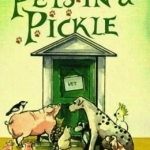
Pets in a Pickle
Book
Foreword by Jim Wight, son of James Herriot and author of The Real James Herriot James Herriot...
